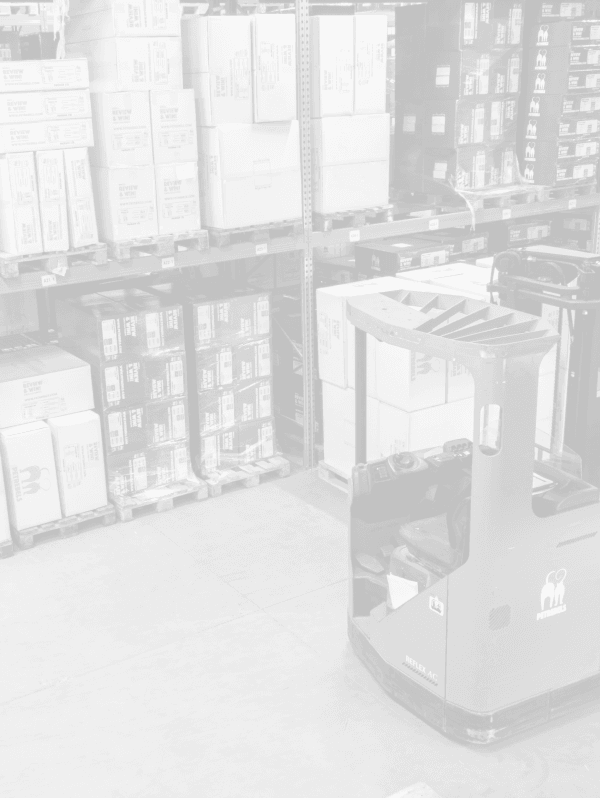
Industries
High Volume Merchant Account
If you are a high-volume merchant, you know how difficult it can be to obtain a high-volume merchant account. That's why you need Zen Payments! We have over 15 years of experience in the high-volume merchant account business. We'll help you partner with a payment processor that's perfect for your business model.
WHAT IS HIGH-VOLUME
PAYMENT PROCESSING
A high-volume merchant is typically a business with more than $100,000 in monthly sales volume. This type of volume can be risky for traditional merchant account providers. Sometimes, they'll refuse to work for you, or they may place a limit on monthly sales transactions and flag or freeze your account if you process more. That's why if you process more than $100,000 every month, you'll need a high-risk merchant account.

WHY TRADITIONAL CREDIT CARD PROCESSORS DON'T WORK
WITH HIGH-RISK MERCHANTS
Why don't traditional banks and other financial institutions work with high-risk merchants? High-volume merchants and other high-risk industries will find it difficult, if not impossible, to set up a long-term standard merchant account. Traditional merchant services providers find it risky to work with high-risk industries because of certain factors that increase the risk for the payment provider. These include high susceptibility to fraud or illegal activity, a large number of total returns, high chargeback ratios, a high volume of transactions, or industry regulations.
The business owner's personal credit history can also play a role as well. A business owner with a bad credit history or a lack of credit history can result in a business being labeled high-risk.

WHY IS A HIGH-VOLUME MERCHANT CONSIDERED HIGH-RISK
BY MERCHANT ACCOUNT PROVIDERS?
A high-volume business needs a high-risk merchant account to process credit card payments because they process so many transactions. Many payment processors and business bank accounts can't handle a high volume of transactions and may place processing limits on your account. This limits your growth and puts you at a higher risk of having your account frozen.
Processing a high volume of transactions on a regular basis also means high-volume businesses have the following risk factors that financial institutions are wary of.
- High Chargeback Ratio: One of the biggest reasons high-volume merchants are considered high-risk is because with a high volume of transactions comes a higher volume of chargebacks. Chargebacks mean the payment processor has to reverse transactions.
- More Fraud Claims: The same is true of fraud claims. The more transactions that take place, the higher the chance of fraud when processing transactions.

WHAT THIS MEANS FOR OBTAINING A
HIGH-VOLUME MERCHANT ACCOUNT
Because of these risk factors, processing a high transaction volume means you are categorized with other high-risk businesses. That means traditional merchant services providers, such as Stripe or Shopify, probably won't work for your business. You'll need to find a payment processing partner that understands high-volume processing.
Zen Payments is the company to trust. We know how frustrating it can be to find high-volume payment processors as a high-risk merchant. That's where we come in. We have over 15 years of industry experience and offer custom payment processing solutions that will work perfectly with your business. If you need a high-risk business account or other merchant services, look no further!
Learn More About Zen Payments Processing Solutions
ACCEPT CREDIT CARDS
IN STORE AND ONLINE
Whether you conduct business in-store or online, credit card processing is key to conducting business. If you have a physical location and need to process payments manually, we have plenty of options to choose from. We offer a virtual terminal for manual payment processing without a website, as well as multiple physical credit card terminal options.

GET SETUP WITH
SECURE PAYMENT GATEWAYS
If you will have high transaction volumes online, you'll need a different setup that includes a secure payment gateway. Payment gateways are essential for processing debit and credit card transactions for online payments. They ensure credit card information is secure and properly routed. At Zen Payments, we have years of experience setting up merchant accounts and payment gateways for online businesses, particularly those processing a high-volume of transactions. With a variety of options and partnerships with over a dozen financial institutions, we can provide your high-volume business with a merchant account and payment gateway that perfectly meet your needs. That's why Zen Payments is the go-to company for high-volume merchant accounts and payment processing.
CHOOSE A HIGH-VOLUME MERCHANT ACCOUNT
WITH LONG-TERM STABILITY
Many merchant account providers offer instant approval. Choosing one of these companies can be tempting because you'll be able to process payments quickly. However, most of these payment processors skip the formal underwriting step. This means you face the risk of having your account shut down or your funds placed on hold once they realize you are a high-volume merchant.
You need to choose a company that has experience with high-risk and high-volume merchant accounts to ensure you are continually able to accept payments with no worries.
At Zen Payments, we specialize in high-risk industries and businesses. We will get you set up with a high-volume merchant account and payment processor that has industry expertise.

HOW CAN I OBTAIN A
HIGH-RISK MERCHANT ACCOUNT?
If you are a high-volume business that needs more than a standard merchant account, Zen Payments is the best merchant services provider in the industry. We'll create a custom payment processing solution tailored to your business needs, whether it's a high-risk merchant account, a payment processor, or a secure payment gateway.
Next, you'll go through the application process. With our 98% acceptance rate, you can be confident as we guide you through the application and underwriting steps. Once approved, we'll assist you in setting up your high-volume merchant account, ensuring you're ready to start accepting credit card payments.

WHY GO WITH ZEN PAYMENTS AS YOUR
HIGH-VOLUME MERCHANT ACCOUNT PROVIDER?
Zen Payments has been providing merchant services to high-volume merchants for years. With our industry expertise, we can set you up with custom payment processing solutions, including a high-risk merchant account and everything else needed to start accepting credit cards online and manually.
We take pride in offering the lowest rates among merchant account providers, helping you maximize revenue from high-volume sales. If you need high-risk payment processing and merchant services, there is no better company to work with.
Additionally, we have relationships with over 15 financial institutions, including high-risk banks experienced in working with high-volume merchants. We'll find the perfect financial partner for you.
Get Started Today!BENEFITS OF WORKING
With Zen Payments
We Have a Network of Over 15 Financial Institutions
Our high-volume merchant accounts ensure seamless and efficient payment processing for large-scale operations.
Chargeback Prevention Tools
Our retail POS systems are crafted to minimize chargebacks, ensuring fewer instances of credit card funds being reversed. They actively combat fraud and mitigate situations where sales are completed without adequate buyer funds. Furthermore, you'll receive comprehensive information to facilitate effective chargeback disputes. These chargeback prevention tools are indispensable when you regularly see a high volume of transactions.
We Make Payment Tracking Easy
Managing payments from your customers can become increasingly complex as your business grows. At Zen Payments, we streamline this process by providing detailed monthly statements. These statements enable you to effortlessly monitor your sales volume, track deposits, and review all charges incurred during the billing period. This is invaluable for a high-volume merchant.
Upfront Pricing
We are committed to complete transparency in our clients' costs. With us, you will never encounter hidden fees or unexpected charges, regardless of how long you maintain a high-volume merchant account. Additionally, we provide an itemized statement upon sign-up to eliminate any guesswork.
Fast Setup Process
We understand the importance of promptly initiating your business's payment processing. While the underwriting process may take longer for high-risk merchants, we strive to expedite the task as much as possible. In most instances, you can expect approval for your high-volume merchant account within two weeks or less.
NEED A HIGH-VOLUME MERCHANT
Account?
If you're looking for payment solutions that will positively impact your high-volume business, Zen Payments is ready to help. Get started right now by contacting us online or giving our merchant services specialists a call at 877-715-4501.
Apply Now




